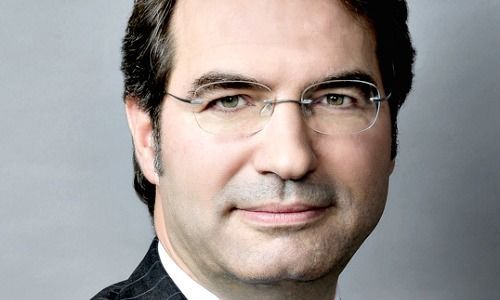EFG International hired a record number of private bankers last year – but dozens of advisers also left the Swiss wealth manager. What EFG's numbers say about the rising pressure to produce on advisers to the wealthy.
For CEO Giorgio Pradelli the 181 new private bankers hired or won last year is proof the Zurich-based private bank has turned the corner. EFG's newly-won client relationship officers – the private bankers who effectively work as individual profit centers – brought 2 billion Swiss francs ($2.01 billion) in new money last year.
The other side of the coin is that 140 other private bankers left EFG last year: the net effect of hiring last year is 39 new advisers, when stripping out the acquisition of Australian asset manager Shaw and Partners last year. Without Shaw, EFG employed 629 private bankers in all at year-end.
Third-Year Pressure
The numbers represent a ruthless churn of the personnel on which EFG's business model is based. It also underscores how the private banker job is far more demanding and performance-driven that the comfy cliche of the past – and how the «front» staff need to begin producing fairly quickly after defecting.
Bank chief Pradelli made it clear last month: «Our model dictates that private bankers are profitable by their third year,» he told finews.com in December (in German). Should advisers fail that test, EFG and the banker part ways «by mutual agreement».
Smaller Crops
Pradelli made clear that such «mutual» agreements have intensified of late, which effectively means those hired in 2015 weren't top-producing advisers. EFG has reinforced its recruiting and hiring process, Pradelli said – in 2016, the bank only hired 30 wealth managers, one year later it was 59, and in 2018 the number dipped back down to 30. Three-quarters of last year's crop – 181 people – joined in the second half, meaning they had scant time to bring in fresh assets.
The pressure to do so is rising: private bankers must become more productive, Pradelli emphasized at a press briefing on Thursday. For one, so-called CROs have to tend to a bigger pile of assets – the average portfolio size climbed to 295 million francs last year, from 222 million francs in 2018. EFG also wants to hike the number of mandates – which feeds recurring fees – as well as intensify spending cuts.
Tougher Rhetoric
The stepped-up rhetoric makes clear how much private banks are battling lower margins. EFG's adjusted revenue margin to 82 basis points last year from 84, which the bank said is due to low and negative interest rates. Pradelli is responding by targeting a cost-income ratio of 75 percent at most, compared to 85.2 percent last year. «We can't do this without more revenue,» he noted.
While EFG, together with Swiss-Brazilian wealth manager J. Safra Sarasin, is among the toughest taskmasters for private bankers, requirements are also rising at other banks. Julius Baer, in the midst of cutting 300 jobs including those of «front» or client-facing bankers, is setting targets to more closely track productivity as well. At industry giant UBS, co-heads Iqbal Khan and Tom Naratil will begin timing hours spent with clients – and is rolling out technology and incentives to do so.




































